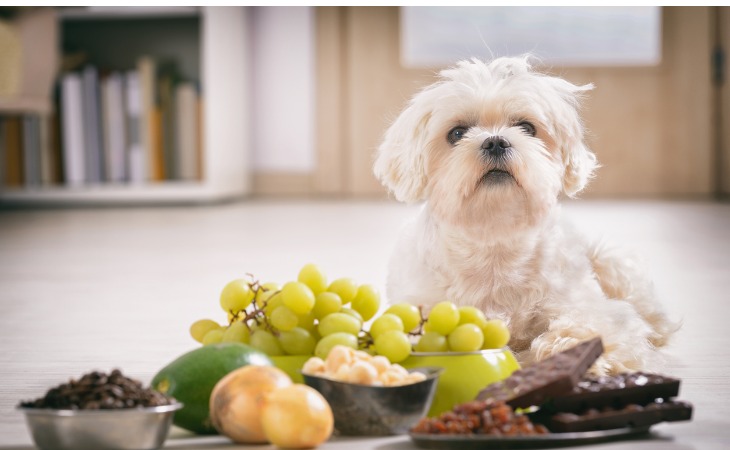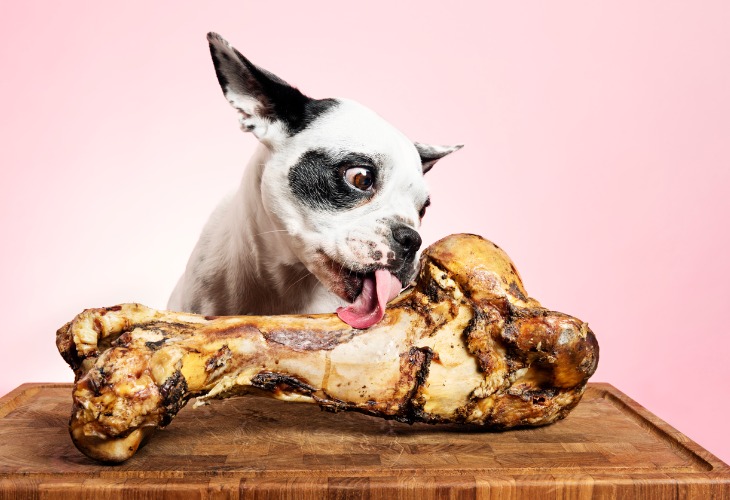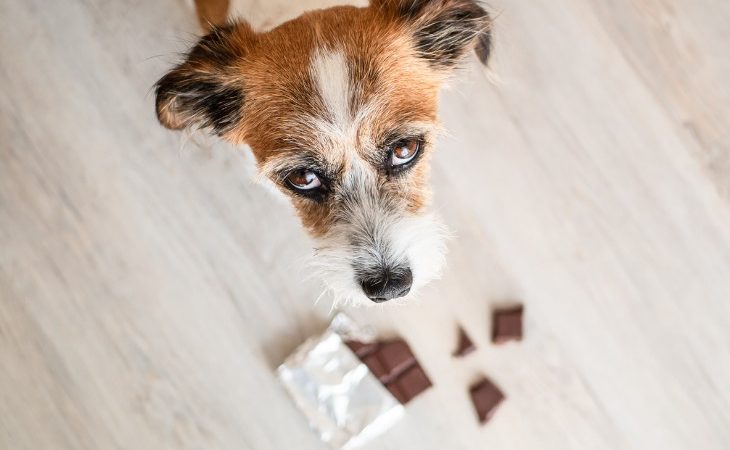We are often tempted to feed our dogs the same food we eat at the table. After all, what’s wrong with treating our dog to a nice home-cooked meal? However, it is important to keep in mind that while some foods are perfectly harmless for humans, some of them can be poisonous to canines. Do you know which foods are the most dangerous for dogs?
It is important to be very careful when feeding your dog human food. It is also important not to leave it within their reach, as poisoning can happen quickly. If you suspect that your dog has consumed a food that is potentially toxic to him, the best solution is to approach the nearest poison control center or vet. You can also call them by phone to find out what to do.
Chocolate
Among the most dangerous foods for dogs, the most harmful is chocolate. This food contains a compound that stimulates and disrupts the heartbeat of the animal: theobromine. Ingestion of high doses of this product can have dramatic consequences on your dog. It appears as hyperactivity due to the racing of the heart. Other symptoms include diarrhea and vomiting, which leads to dehydration.
It should be noted that the dose of chocolate that can cause acute poisoning is 200 g (7 oz) for dark chocolate. And 500 g (17 oz) of milk chocolate for a dog weighing 10 kilos (22 lbs).
So be careful of the risk of chronic intoxication that can occur when you regularly give your dog chocolate to eat, even in small quantities. In the long term, your dog may develop potentially fatal cardiovascular problems.

Coffee
The theobromine in chocolate is also present in coffee and cannot be metabolized by the dog’s liver. This makes coffee toxic for the animal and will cause the same symptoms as chocolate in your pet.
Grapes
Grapes, whether fresh or dried, are among the most dangerous foods for dogs. The discovery of its toxicity is relatively recent. It is important to know that the component that is responsible has not yet been identified by the experts.
This is not a food that a dog can consume, even in small doses. Since a single bunch of grapes can seriously intoxicate him and even cause his death. The same is true for raisins!
Determining the lethal dose for dogs is made even more difficult by the fact that sensitivity varies from one animal to another. In any case, the symptoms of intoxication are digestive problems, then renal failure. This can lead to the death of the animal after 24 to 72 hours.

Potatoes
It is important to note that dogs can eat cooked potatoes. It is the raw potato that is the problem. Potatoes contain calcium oxalate, which can cause urinary tract infections in your pet.
However, it is necessary to be cautious with cooked potatoes, since they can cause problems with their intestines. In particular, it can cause constipation and obstruction of the intestines when not properly chewed.
Cooked bones
Cartoons have always depicted dogs chewing on bones with delight. However, bones are often among the most dangerous foods for dogs. This is especially the case when they are cooked. Bones become dangerous when they are broken down during chewing. These shards, which are very sharp, can perforate the stomach or intestines.
If dogs chew bones, they can injure the inside of their mouths or get them stuck in their teeth.
You should therefore avoid giving your dog brittle bones that come from poultry and rabbit. These bones break easily even when raw. On the other hand, beef bones are safe and rich in cartilage.

Cow’s milk
Cow’s milk can also be potentially toxic to dogs because of the lactose it contains. This component can be particularly difficult to digest. It causes vomiting and diarrhea in case of intolerance. As you can see, lactose intolerance is not only a human problem, dogs can also be affected.
It is, therefore, better to ban whole or skimmed milk from their diet. As well as dairy products such as butter, cheese, yogurt, ice cream, etc.
For adult dogs, low-fat milk is a substitute for whole milk and other dairy products that they love. You can also give them a little fresh cream or butter very occasionally and sparingly.
Cat food
Is your dog’s bowl empty and your cat’s wet food or kibble attracting your dog? Be warned, it is also not recommended to give your dog cat food. Cat food and kibble contain fat and protein that is difficult for your dog to digest. This can lead to pancreatitis (inflammation of the pancreas).
If you are interested in learning about which foods are dangerous for cats, read this.
Garlic and onions
Garlic is a food that some owners give to their dogs to deworm them. However, its effectiveness as a dewormer has not been proven. On the other hand, its toxicity is well and truly proven. Both raw and cooked, garlic is fatal to dogs. The lethal dose is more precisely 2 whole cloves of garlic for a dog of 10 kilos (22 lbs). It can be difficult to diagnose because the symptoms appear late. The signs that should alarm you are vomiting, gas, dark urine, and tachycardia (a heart rate of over 100 beats per minute).
Onions are also a dangerous food that should be avoided. Onions have a particularly high toxicity. The consumption of onions in small doses can, in the long term, be fatal for a dog.
It is also advisable to be careful with other foods such as shallots, chives, and leeks. These also contain toxic ingredients. Be careful with leftovers from your meals containing garlic and onions.
In fact, after chocolate, onions are the second most common cause of food poisoning.
Avocado
Avocadoes contain a fatty acid called persin which can cause reactions after only 1 hour to 24 hours. Some of the symptoms are lethargy, vomiting, weakness, and diarrhea. It can even cause fatal cardiovascular disorders in the animal.
Macadamia nuts
Although the compound in macadamia nuts that is toxic to dogs has not yet been identified, macadamia nuts should be avoided. The signs of poisoning are vomiting, diarrhea, but also pain in the joints that prevent the dog from moving. They usually occur in the 6 to 24 hours following the ingestion of the nut, with the toxic dose being only 2.2 grams (0.07 oz) per kilo (2 lbs) of body weight.
While eating macadamia nuts can weaken your dog, they are not fatal.

